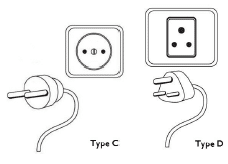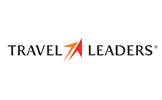NEPAL

Fun Facts From Globus Tours
- Nepal’s flag is the only national flag in the world that is not quadrilateral (rectangular).
- Nepal has the highest concentration of UNESCO World Heritage Sites. The Kathmandu valley leads the way with seven
- 99% of Nepal’s electricity is hydroelectric; however, currently only 76 percent of the population utilizes electricity.
Nepal is home to the highest point on earth, the deepest valley in the world, the birthplace of Buddha, and one of the most diverse yet harmonious populations of people. For each visitor an ancient story waits in the night’s shadows and comes alive each day as the sun creeps over the peaks, awakening the main square in Kathmandu – a center of ritual and mystical tradition. Although Hinduism is the major religion here, Buddhism has its roots deeply embedded in Nepal. The Hanuman Dhoka is the gateway to a Durbar Square spanning over five acres and is a magical place to visit – inside are remnants of many small kingdoms that once made up this part of Nepal. This area of the city was the seat of royalty in Nepal and is an urban and cultural focal point in Kathmandu. One thing you’ll definitely notice is the friendly and hospitable nature of the people. They are delighted by visitors and eager to share their daily life and culture.
VISAS, PASSPORTS, AND OTHER ENTRY REQUIREMENTS
You are responsible for obtaining and paying for all entry documents (visas, etc.) and for meeting all health requirements (inoculations, etc.) as required by the laws, regulations, or orders of the countries you will visit. We cannot accept liability if you are refused entry onto any transport or into any country for failure to carry correct documentation.
A visa for your visit to Nepal is necessary for US citizens. If you hold a passport from another country, check with your local consulate about requirements for travel to Nepal.
Nepal visas can be obtained through an embassy or a visa service prior to departing the US. Alternatively, a visa can be obtained upon arrival at the airport in Kathmandu. The embassy or visa service will be able to advise the latest requirements for obtaining a visa.
In general, going through a visa service is more expensive but it offers convenience and peace of mind. If you choose to go this route, we recommend contacting Generations Visa Services (GenVisa), our preferred partner for visa and passport services, at least 90 days prior to departure. GenVisa has a special website and toll-free number. Call 800.845.8968, email info@genvisa.com, or visit their below websites for additional information. Our travelers receive discounted prices and other special services:
- For Monograms, visit: genvisa.com/monograms
- For Globus, visit: genvisa.com/globus
- For Avalon, visit: genvisa.com/avalon
- For Cosmos, visit: genvisa.com/cosmos
All passengers traveling internationally are required to have a passport. Most countries require that the passport be valid for at least six (6) months beyond the conclusion of your trip, so please check the expiration date carefully. It is also recommended you have a minimum of three blank pages in your passport when traveling, as many countries require blank pages. Please carry proper identification (your passport) on you and do not leave it in your suitcase or hotel room. Most countries have laws that require you to carry your passport with you at all times.
COUNTRY CODES
The country code for Nepal is 977. When calling to Nepal from overseas, dial your international access code (011 from the US/Canada), followed by the country code, area code, and phone number. Phone numbers in Nepal are 8 digits in length. Dialing from the US/Canada: 011 977+#### ####.
CURRENCY
In Nepal the local currency is the Nepalese Rupee. 1 Nepalese Rupee = 100 Paisa
-
-
- Banknote denominations: 1, 2, 5, 10, 20, 50, 100, 500, 1000 Rupee
- Coin denominations: 1, 5, 10, 25, 50 Paisa
-
As a general guideline, bring a variety of payment means, particularly in the event that you have difficulties with your preferred method of payment.
Cash
US dollars are widely accepted In Kathmandu but outside the city they are not accepted as readily. When paying with US dollars it is important to note that change may be given in the local currency.
For initial convenience we recommend you bring some US dollars with you from home. It is advisable to bring newer US notes that are in good condition as some merchants will not accept those that are tattered and/or old. Alternatively, if you prefer, you can also exchange US dollars into the local currency.
ATMs are available in Kathmandu for both Visa and MasterCard. There have been some reported issues using certain cards so check with your bank before departing home. Keep in mind that only local currency is dispensed.
For the most current exchange rates, please go to our website at Globusjourneys.com/Currency.
Credit Cards
Credit cards are accepted in major hotels, restaurants, and shops in Kathmandu. Outside the city use is limited. Visa and MasterCard are most accepted followed by American Express.
Smaller shops may ask you to pay in cash or have a minimum amount required to use a credit card. If you use a credit card for your purchase, you will be debited in the local currency, and your bank will establish the rate of exchange on the debit.
Traveler’s checks
Although a secure means of carrying money, traveler’s checks unfortunately are becoming very hard to use. Due to this we recommend you plan on using cash and credit cards only.
Bank Hours:
Mon. – Fri., Sun 10 am – 4 pm
Sat. – Closed
BUDGETING AND SHOPPING
The following budget guidelines are just approximate values or starting values for meals and are per person. Actual prices will vary widely by restaurant and city within a country but below are some averages as provided by our experienced personnel.The approximate cost of a soft drink/mineral water/coffee is 40 Rupee.
-
-
-
- An average lunch consisting of a salad or sandwich and a soda or water starts at approximately 450 Rupee.
- Dinner at a mid-range restaurant with dessert and a non-alcoholic beverage starts at approximately 800 Rupee.
-
-
Shopping
Prices are as marked in department stores, though in markets it is customary to barter. Start negotiating with an offer at one-third or half the vendor’s initial price.
Please be warned that if you buy items on tour to be shipped to your home, customs import charges are hardly ever included in the price. Sales tax or GST (Goods & Services Tax) is normally already included on price tags; GST refunds, if applicable, are processed at the departing airport from the relevant country.
TIPPING
Tipping in Nepal is not a common practice; therefore, gratuities are not required for direct services. In restaurants, a service charge may be automatically applied to the bill. If not, a 10% gratuity may be accepted.
ELECTRICITY AND ELECTRICAL OUTLETS
Voltage for outlets is 230. North American voltage is generally 110V. Some, but not all, hotels feature multiregion outlets that accept different types of plugs. Due to this, for dual voltage electronics, we still recommend you bring an adapter. If you have single voltage electronics (110V) a converter is also required. Bathroom outlets are usually for razors only. The outlets look like:

TEMPERATURES
Nepal is on the same latitude as Florida and therefore, has a tropical climate in regions with lower elevation. April through September is typically the warmest, while the wet season is between June and September. To help you plan, below are average low and high temperatures.

To convert to Celsius, subtract 30, then divide by 2. While not exact, this simple formula will give a close estimation.
FOOD SPECIALTIES
Influenced by the neighboring countries and their cultures, India and Tibet, the traditional Nepalese diet includes dal (lentils), bhat (rice), and tarkari (curried vegetables). Since Nepal is home to a large population of Hindus and Buddhists, most restaurants serve vegetarian dishes; however, chicken and fish are available. Vegetables and curry are also commonly used in Nepalese cuisine.
Drinking Water
Tap water is generally not safe to drink. For sightseeing and excursions, we recommend you purchase bottled water to bring with you or bring some from your hotel room. Bottled water is also common in restaurants.
CUSTOMS AND CULTURE
Smoking is common in Asia so locals tend to be less sensitive to issues regarding smoking around others and often ignore “non-smoking” signs.
FEW WORDS OF THE LOCAL LANGUAGE
 Nepali:
Nepali:
Good morning / day: Namaste, Good evening: Namaste, Hi: Namaste, Please: Kripaya, Thank you: Dhanyabad, You’re welcome: Tapai Lai Swagat Chha, Yes: Ho, No: Hoina, Do you speak English?: Tapain English Bolnu Hunchha?, I don’t understand: Mai Le Bujhina, How much?: Kati ?, 1 (one): Ek, 2 (two): Dui, 3 (three): Teen, 4 (four): Char, 5 (five): Paanch, 6 (six): Chha, 7 (seven): Saat, 8 (eight): Aath, 9 (nine): Naun, 10 (ten): Dus, Where is … ?: Kaha Chha?, Telephone: Telephone, Bathroom: Toilet, Tea: Chiya, Coffee: Coffee, Bottled water: Mineral water (carbonated = Soda), Cheers!: Cheers!, Have a nice day!: Subha Din.
U.S. DEPARTMENT OF STATE COUNTRY INFORMATION
Additional country-specific information for US citizens can be found on the US Government’s website www.travel.state.gov. Here, you can find the most up-to-date information about destination descriptions, passports/visas, safety and security, transportation, travel local laws, alerts/warnings, vaccinations, and more. For citizens of other nations, we recommend you consult your local consulate for travel information, regulations, and requirements.













